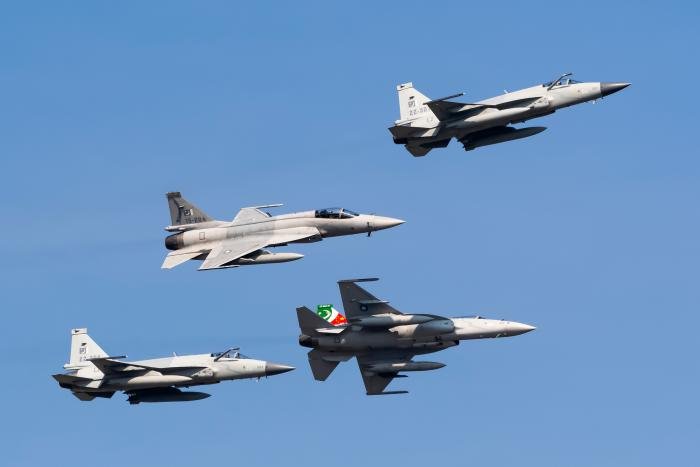During the March 23 Pakistan Day Parade held in the capital, Pakistan's military proudly exhibited its latest defense capabilities, unveiling a series of cutting-edge aircraft and rocket projects. Among the showcased equipment was the Haider platform, representing the first locally produced VT-4 main battle tank, which made its debut appearance. This tank, part of the pilot production batch unveiled earlier in March by the state-owned armored fighting vehicles manufacturer Heavy Industries Taxila, marks a significant milestone in Pakistan's defense manufacturing capabilities.
Moreover, Pakistan showcased the long-range HQ-9/P surface-to-air missile system, making its inaugural appearance. This missile system, supplied by China and entering service in 2021, boasts a range of 125 kilometers, adding a formidable layer to Pakistan's air defense architecture. The parade also featured the unveiling of Pakistan's indigenous Fatah 2 guided multiple-launch rocket system and the medium-range Ababeel ballistic missile, both showcasing the nation's prowess in missile technology.
The display of these advanced military assets underscores Pakistan's commitment to enhancing its defense capabilities and modernizing its armed forces. The decision to unveil these projects during the Pakistan Day Parade highlights the significance of these advancements in bolstering Pakistan's security posture.
Furthermore, Pakistan has announced ambitious new defense programs, including the PFX Program aimed at replacing the JF-17 combat aircraft. Additionally, the Fatah 3, with a range of 450 kilometers, is set to enter service soon, while the Fatah 4, boasting a range of 700 kilometers, is currently under development. These programs signify Pakistan's determination to stay at the forefront of military technology and maintain a robust defense posture.
Experts have noted the strategic implications of these developments, with the HQ-9/P missile system offering shorter effective ranges but superior sensor performance compared to its Russian counterparts. The introduction of these advanced missile systems and aircraft programs reflects Pakistan's commitment to deterring potential threats and ensuring national security.
Moreover, the unveiling of the Ababeel ballistic missile, alongside future developments, underscores Pakistan's efforts to enhance its nuclear deterrence capabilities. This display serves as a clear message of Pakistan's resolve to maintain a credible and dynamic full-spectrum deterrent.
Looking ahead, Pakistan's PFX Program aims to develop a next-generation fighter aircraft, signaling the nation's aspirations for technological advancement in the aerospace domain. While details about the PFX Program remain scarce, experts anticipate cooperation with international partners such as Turkey and China to leverage their expertise and resources.
In conclusion, Pakistan's unveiling of advanced aircraft and rocket programs at the Pakistan Day Parade showcases the nation's commitment to modernizing its defense capabilities and ensuring its readiness to counter emerging threats. These developments mark significant strides in Pakistan's defense industry and underscore its resolve to safeguard its sovereignty and national interests.


:quality(70)/cloudfront-us-east-1.images.arcpublishing.com/archetype/4GCO24O3TZFPJO3WZ5ZTOYH3QA.jpg)